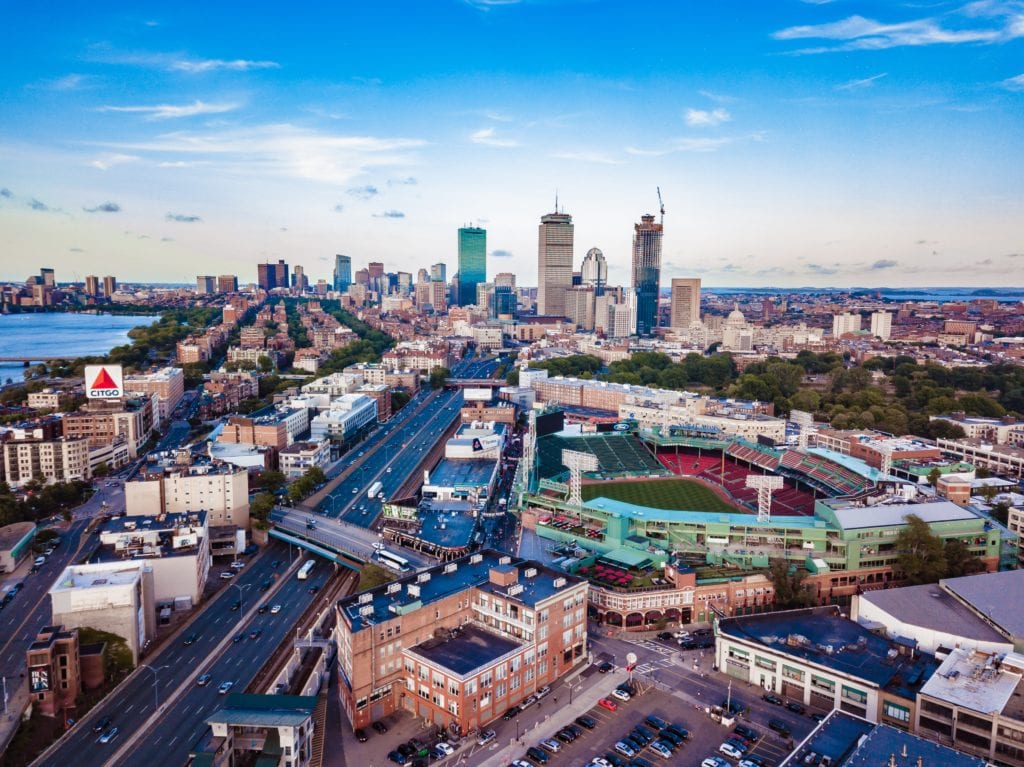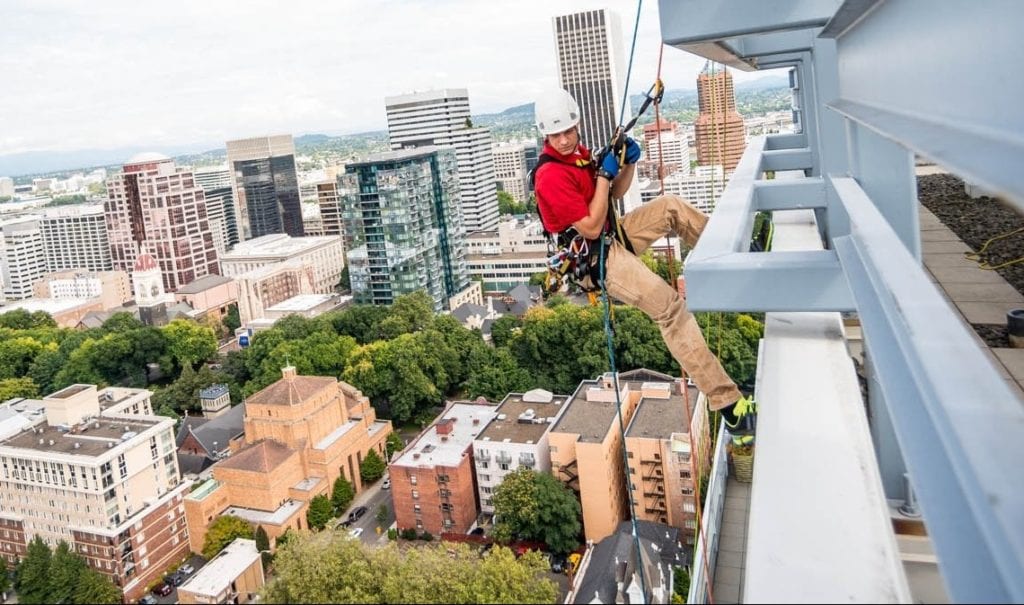Buildings require regular inspections to identify issues such as loose components, wind or seismic damage, premature performance problems, deterioration of façade components, and to plan for future maintenance and renewal activities. Such issues are difficult to identify from the ground, so close-range inspections are often required. RDH routinely performs the following tasks:
- Façade condition assessments
- Leak investigations
Rope access is a great tool for facade inspections. It has many advantages over conventional means such as pipe scaffold or suspended platforms, including the following:
- Rope access requires minimal setup and no heavy equipment. Ropes and other gear can be brought into the building and onto the roofs using service elevators.
- Rope access can often be deployed in a shorter period of time and at a lower cost than suspended platforms.
- Rope access offers a time-efficient means of inspection. A rope access drop goes much faster than a suspended platform drop but covers approximately the same façade area.
- Existing building elements such as steel dunnage, penthouses, or certified roof anchorages can be used to secure the ropes. RDH engineers will evaluate which roof elements are suitable.
Industrial Rope Access
RDH staff are trained and certified to utilize industrial rope access methods by the Society of Professional Rope Access Technicians (SPRAT). This approach uses a two-rope system with the capability to both descend and ascend. Industrial rope access is not the same as rope descent systems or bosun’s chair access. Industrial rope access is specifically excluded from OSHA 1910.27: Walking-Working Surfaces, which limits the use of rope descent systems to 300 feet above grade. Therefore, RDH is able to utilize industrial rope access to inspect any building or other structures at any height.
Façade Ordinances
Many US cities have instated a building façade ordinance, including Boston, Chicago, Cincinnati, Cleveland, Columbus, Detroit, Milwaukee, New York, Philadelphia, Pittsburgh, San Francisco, and St. Louis, plus the province of Quebec in Canada. These ordinances require buildings over a certain height to be inspected at close range by licensed architects and engineers at regular intervals. Although RDH does not have offices in all of these cities, our knowledgeable staff can provide façade inspection services throughout the US and Canada. RDH’s approach to façade ordinance inspections is further described in a separate blog post.
Façade Access Equipment
RDH’s Façade Access Equipment team can also assist with design, evaluation, load testing, and certification of roof anchorages, davits, or other equipment used for rope access or general façade access.
References:


